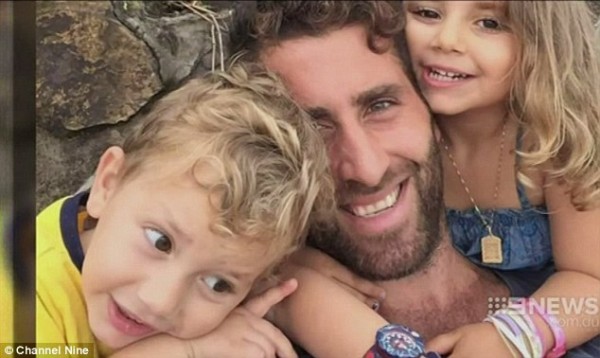
[/caption]SOME ideas are so audaciously stupid that you can’t help but be swept along with them.
There is no other explanation for the decision to send seasoned broadcasting people to immerse themselves in a complex child custody dispute on the other side of the world, with no mind for the risks they were taking or placing others in.
Not since baby Wawa was rescued from the cannibals’ pot in Papua New Guinea has a TV news program been at the centre of such drama as 60 Minutes. At least the Wawa story was cruelly comical, with the poor kid being caught in an absurd battle between Today Tonight and A Current Affair over which program could do the best job of saving him from the (apparently non-existent) threat of becoming casserole. But there is nothing comical about the mess Channel 9 has landed itself in over its involvement, the degree of which is still in dispute, in the abduction of children at the centre of a custody battle in Lebanon.
Clearly, Nine was so dazzled by the prospect of securing such an amazing exclusive that no one piped up in the planning stages to declare the obvious — that the story was so fraught with risk as to be ridiculous. As a story concept, the most cursory SWOT analysis of its strengths, weaknesses, opportunities and threats would have wholly tilted towards the negative. Here’s an idea: let’s cover a custody battle which would be illegal to report on in Australia, on the other side of the world, relying on a murky outfit that specialises in “human transfer”, with a reported backhanded payment of $115,000 and the abduction being filmed live on the streets in a part of Beirut controlled by the terrorist organisation Hezbollah.
What could possibly go wrong?
Nine had an imagined story when it planned this trip. It imagined that 60 Minutes would help reunite two estranged children in Lebanon with their Australian mother. Perversely, the result is the exact opposite, with the kids now likely to spend the rest of their childhood in Lebanon with their father, on account of the criminal act of seizing the children by force. And as part of the bargain, journalist Tara Brown and her crew are facing a lengthy stint in jail, along with the shady outfit which pulled off the kidnapping.
Aside from the fact that this story was logistically cursed from the outset, it also failed to satisfy one of the key criteria of this type of news story. There was no villain. Tabloid stories often follow a vaudevillian path of good versus evil, where the identities of the good guy and the bad guy are clear.
The story would have been very different if the father in question had been some kind of mad mullah who wanted to take his children back to the Middle East and force them into arranged marriages and subject them to the worst of Sharia law. Instead, he seems a reasonably laid-back bloke, who owns a surf shop and whose kids clearly love him. It should also be said that they clearly love their mum, too. That is where the whole thing comes crashing down so badly for Nine. None of us should know anything about this because it’s a family dispute, the type of dispute where in most cases neither partner is solely to blame for the broken relationship. It’s one of the reasons the Family Court is, quite rightly, crafted as a secret forum where the only people who hear details of a breakdown is the judge, the lawyers and the parties to the dispute. The other reason for the secrecy, obviously, is that children are often involved.
There is no way Channel 9 could have covered this story had it played out in Australia and rightly so. As a journalist, almost all my instincts tend towards publication but it would be recklessly intrusive and potentially damaging to kids if we decided divorces and custody battles could and should lead news bulletins. The only exceptions should be cases where a family dispute overlaps the criminal law, as in cases of family violence, or where the dispute involves public figures and affects the execution of their duties. Even then the children should not be part of the story. But Nine gets three strikes: no criminality, not public figures and the kids were the stars of the show.
The fact the network dazzled itself into chasing an exclusive, stemming from that first editorial meeting where people sat around enthusiastically agreeing with each other, means it committed what many Australians clearly regard as a moral crime. That crime is to stick its beak into a harrowing private family dispute.
It fails the front bar test and helps explain the aggressive tenor of so much public discussion of this issue, of the who cares, leave them in jail variety. The one favour Nine has done is to remind us where the end point comes for the public’s right to know, as none of us have any right at all to know about the inner workings of this family.
By David Penberthy
Herald Sun



Leave a Reply
You must be logged in to post a comment.